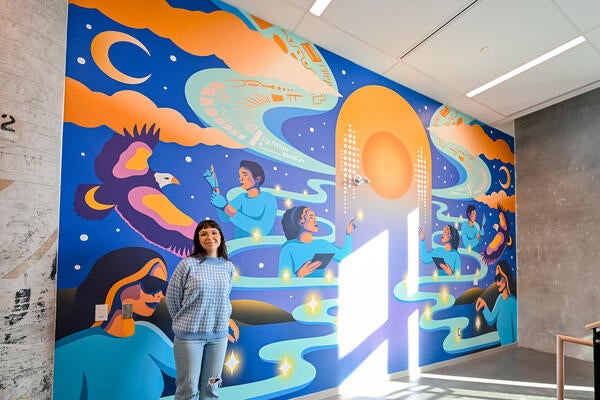Velocity’s new director shares his passion for the startup world
Jay Shah, the new director of the world’s largest free startup incubator, has advice for entrepreneurs starting out
Jay Shah, the new director of the world’s largest free startup incubator, has advice for entrepreneurs starting out
By Jude Fiorillo Velocity Jay Shah - a former startup co-founder and University of Waterloo alumnus - is the new director of Velocity, Waterloo’s flagship entrepreneurship program. Shah joins Velocity from Google, where he worked since the tech-giant acquired BufferBox, the company he co-founded in 2012.
Jay Shah - a former startup co-founder and University of Waterloo alumnus - is the new director of Velocity, Waterloo’s flagship entrepreneurship program. Shah joins Velocity from Google, where he worked since the tech-giant acquired BufferBox, the company he co-founded in 2012.
BufferBox, founded by Shah alongside Aditya Bali and Mike McCauley, began as a fourth-year Engineering Capstone Design project to create lockers for parcel delivery. The company worked out of both the University’s Accelerator Centre and the Velocity Garage; won the Velocity Fund Finals and attended Y Combinator, before ultimately being acquired by Google. Shah starts his role in September with a vision to spread innovation and entrepreneurship across campus.
“With his background at Waterloo, in a startup and at Google, Jay Shah is uniquely positioned to guide the next wave of world-changing entrepreneurs emerging from University of Waterloo,” said Feridun Hamdullahpur, President and Vice-Chancellor of the University of Waterloo.
We sat down with Jay to share his insight on the Waterloo region tech scene, his passion for startups, and advice to future entrepreneurs.
So many things. Working and being part of a super fast-pace environment. Companies in their earliest stages are often incredibly agile and nimble.
I also want to be able to have a positive impact on the Waterloo region technology scene – specifically to further our region’s ability to punch above its weight both in Canada and Globally.
The lack of a rule book. There are no limits and no formula that leads to a successful startup. Across the life of a company, the early stages are when there is the least to lose, meaning you can do things in a way larger companies can’t. Whether that is working the best you can with laws that can’t keep up with the pace of new technology, or simply not needing to worry about external aggression, because there are no “spoils” to be had if you are taken down, there is no formula or methodical process that leads to a successful startup.
The calibre of talent at the University of Waterloo, specifically its professors and new graduates, is a competitive advantage for companies in Waterloo. They are the product of incredible academic faculties, a culture that supports risk-taking, and the best co-op experiential learning system in the world
Entrepreneurial qualities can be exercised, but to give yourself the “unfair advantage” you’ve got to learn from people that have done it before. Getting and evolving your group of mentors is critical to success in your own journey down the entrepreneurial rabbit hole.
I was, and continue to be, quite interested in how policy decisions are made as well as long-term strategic planning. Both of those governance bodies were deeply involved in both.
I am keen to work with stakeholders across our region for maximum output and benefit. We are fortunate to have so many people and organizations that want to see entrepreneurial activities flourish, but with that, comes a responsibility for all of us to make the most of the resources we have together.
I want to ensure that all students have the opportunity to be exposed to the entrepreneurial spirit and mindset. Even if students do not want to start a company, there is a lot of benefit in the fundamental principles, such as problem identification and solving, resourcefulness, tenacity, and persistence.

Read more
How Doug Kavanagh’s software engineering degree laid the foundation for a thriving career in patient care

Read more
Upside Robotics secures new funding to accelerate the future of sustainable farming

Read more
Many Hearts, One Mind by Indigenous artist Alanah Jewell celebrates the act of creation shared by the Land and innovators in our community
The University of Waterloo acknowledges that much of our work takes place on the traditional territory of the Neutral, Anishinaabeg, and Haudenosaunee peoples. Our main campus is situated on the Haldimand Tract, the land granted to the Six Nations that includes six miles on each side of the Grand River. Our active work toward reconciliation takes place across our campuses through research, learning, teaching, and community building, and is co-ordinated within the Office of Indigenous Relations.